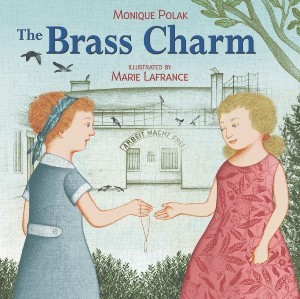Polak sold her first manuscript at age 44, and has since published 32 books for young people (she only hoped to publish one), with more in the works. She is a three-time winner of the Janet Savage Blachford Prize for Children’s and Young Adult Literature (Quebec Writers Federation), and has been nominated for many other prizes, and is also a journalist.
Known by her friends and family for her catchphrase, “What’s the story?” Polak calls herself an insatiably curious person, fascinated with stories and how memories inspire them. While ideas come easily, however, she says she struggles with the writing. “I don’t think of myself as super talented, but I’m a super hard worker. The writing is where I face my weakness every day. I guess I like a challenge!”
Ultimately, it is her mother’s story that has most impacted her life. “I feel like I was put on Earth to learn about the Holocaust and write these stories,” says Polak. “How lucky am I that I found the thing I was meant to do?”
Keeping stories alive
While Polak retired from teaching in 2022, she continues to feed her passion with author visits to schools. “When I was a kid, I had nobody to tell me anything about writing and publishing. I’m hoping there’s someone like me who’s lapping it up,” she says, encouraging anyone who feels they have writing talent to take themselves seriously and to know that the arts provide viable career options.
Her hope is that The Brass Charm will lead her to someone who knows something about its original owner, and that the story will continue to grow from there.
“Unlike things, stories live on and we need to keep telling them — not just stories about the Holocaust, but any story of hardship, resilience and love. The monkey-man reminds me that kindness is possible, even in the hardest times.”
 Photo by John Fredericks
Photo by John Fredericks
 The Brass Charm shares an act of kindness that author Monique Polak’s mother experienced while imprisoned in a concentration camp in 1943. | Illustrations by Marie Lafrance
The Brass Charm shares an act of kindness that author Monique Polak’s mother experienced while imprisoned in a concentration camp in 1943. | Illustrations by Marie Lafrance


